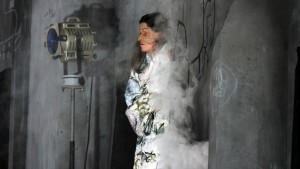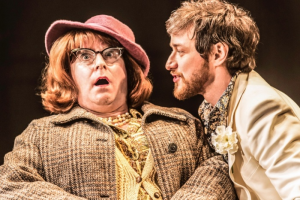Are we losing the classics?
Almost everything I learned about classic theatre, I learned at the theatre. My early exploration spiralled out of being an Eng Lit geek with a serious Penguin Classics habit. I collected black-spined Ibsens and devoured them like thrillers, and read thunderous bits of Jacobean shockers out loud (still do).
Going to the theatre was like the world’s best library come to life. While a teenager, I saw not just scads of Shakespeare and lashings of Chekhov, but also Jonson and Behn, Racine and Ostrovsky. During my student years, the RSC explored plays from the long 17th century in the Swan, while Cheek By Jowl, Jonathan Miller’s Old Vic, Katie Mitchell’s Classics on a Shoestring and the Almeida tugged rare masterpieces from the cobwebby corners of the European repertoire. Marivaux! Etherege! Gorky, Lessing, Goldoni!
I saw loads of new works too, of course – some of which are now pretty darn canonical (Churchill, Stoppard, Hare and Kane). But for this lucky London boy, the theatre within reach was thrumming with plays old and new – and some old texts so unfamiliar they seemed like premieres.
Two reports this week suggest that the equivalent adolescent oddbod, holed up in his bedroom with The Revenger’s Tragedy, might not be able to experience such diverse treats. From Britain, Dan Rebellato introduced an interim report from what looks likely to be an invaluable piece of research led by the British Theatre Consortium. Analysing the repertoire performed by 273 theatres in 2013, its headline finding is that ‘new work dominates the repertoire; it is substantially over half of the work programmed and generates almost two-thirds of our theatres’ income.’ As the Stage reported, ‘this is the first time since records have been kept that new work has overtaken the number of revivals staged.’
Fight to the death
Equally provocative is a finely-argued lament responding to the announcement of this year’s Theatertreffen programme, an annual festival in Berlin of the best of German theatre. Holger Syme calls it ‘seriously troubling,’ lamenting the unusual paucity of classic work among the 10 productions – nothing from before 1896, when Ibsen’s John Gabriel Borkman was premiered (it will be seen in Karin Henkel’s production from Hamburg, pictured top by Klaus Lefebvre ). Instead, there’s a skew towards new plays and adaptations. In previous years, he argues, the ‘young directors also grappled with the classics of the European dramatic canon. Not in order to take a break from the present — but precisely to say something topical, to speak about and to the present moment through a performance refracted through the old text.’
This piece has already occasioned a certain amount of eye-rolling – we should all have such problems, sigh observers from Australia and Canada – but Syme makes a superb point that ‘the German reliance on a canon of classics plays a key role in authorizing actors to play with their text, and directors to put that text to whatever purpose they choose.’ In other words, staging classic works doesn’t tame theatre, but acknowledges that a production can be an argument, even a struggle, opening up a productive distance between text and production: ‘the staging of an old play can feel and look like a fight to the death with the text.’
Spring from the grave
Why does this matter? Don’t we want a theatre ecology in constant evolution, refreshed by new, responsive and provocative work? We surely do. And no one wants a museum repertoire. That’s largely what ballet suffers from – as I argued last year – not just a niggardly amount of new work, but a shrinking selection of existing pieces. It’s stifling.
There’s a thrill in seeing an old play spring from the grave and hit the ground running. It was no accident, I think, that the rich seam of productions I experienced came during an intense interest in identity politics, so that classic plays could delineate the cage of long-surviving gender roles or watch people rattling the bars. Restoration comedy flourished during the boom and bust years, the mainstreaming of boutique gentrification and coffeeshop culture, and the peacocking rise of the meterosexual. Jacobean tragedy is always current, because there are always unscrupulous overlords who play politics and economics with a Renaissance cardinal’s corrupt disdain. And you’ll always feel like killing the bastards, possibly via weaponised cherubs.
To make those connections, to relish the work, you need to see it – I suggested here last week that the rich early-modern repertoire of the Globe’s new Sam Wanamaker Playhouse allows audiences to discover the differences between Jacobean tragedies by Webster, Middleton and Ford.
The lure of classic work for the lonely reader trembles beautifully in Alan Bennett’s The History Boys, where a teacher sighs ‘it’s as if a hand has come out, and taken yours.’ But theatre is a social act – you may feel that lone thrill of connection, but you can also get the excitement of a defiantly undead play reaching forward and grabbing you by the throat, insisting on an urgent story the room needs to hear.
I can imagine there are pressing economic reasons for British theatre’s turn towards the new – large-cast classics, written for an age when bodies were cheaper than scenery, are expensive to stage. But, as Rebellato noted in a tweet yesterday, the problem extends to productions of existing work by living authors, too. ‘Lots of writers only make a living because they get revivals,’ he said. ‘If revivals go, so does new writing.’
All of these arguments especially resonated after a couple of things plunged me back into my fervid early theatregoing. One was the death of the brilliant actor Geraldine McEwan, whose Mrs Malaprop in The Rivals was one of the first – and still one of the funniest – things I saw at the National Theatre. I later caught her in Congreve and Ionesco, and leapt on reviews from her earlier career, liberating Shakespearean ingénues at Stratford and tweaking Strindberg and Feydeau at Olivier’s Old Vic. With her extraordinary rollercoaster of a voice – fluttering at the highest register and then plummeting to the lowest, unimprovably shrewd and dotty – she reshaped the repertoire she played.
Jamie Lloyd’s vivid revival of The Ruling Class by Peter Barnes not only frames an incandescent star turn from James McAvoy, but also vindicates an author who has fallen off the theatrical radar. Barnes’ work flourished during the 1980s and 90s at the RSC and on radio, but was already leaving the stage before his death in 2004. He wrote and plotted with a baroque pungency – not unlike his beloved Jacobeans – but Lloyd’s inspired advocacy reveals how unexpectedly well this idiom works on stage. It isn’t pastiche, it isn’t waxwork. It’s alive!
And that’s the point. Repertoire is fragile. If it isn’t on stage it isn’t ever, quite, alive. Or, at least, it’s in a persistent sleep, waiting for a call from the present.
Follow David on Twitter: @mrdavidjays



My response is here…
http://vilearts.blogspot.co.uk/2015/02/for-simon-d.html
Gareth, that is fantastic. Consider my jaw dropped. ‘The paranoia emerges at last’ – always.